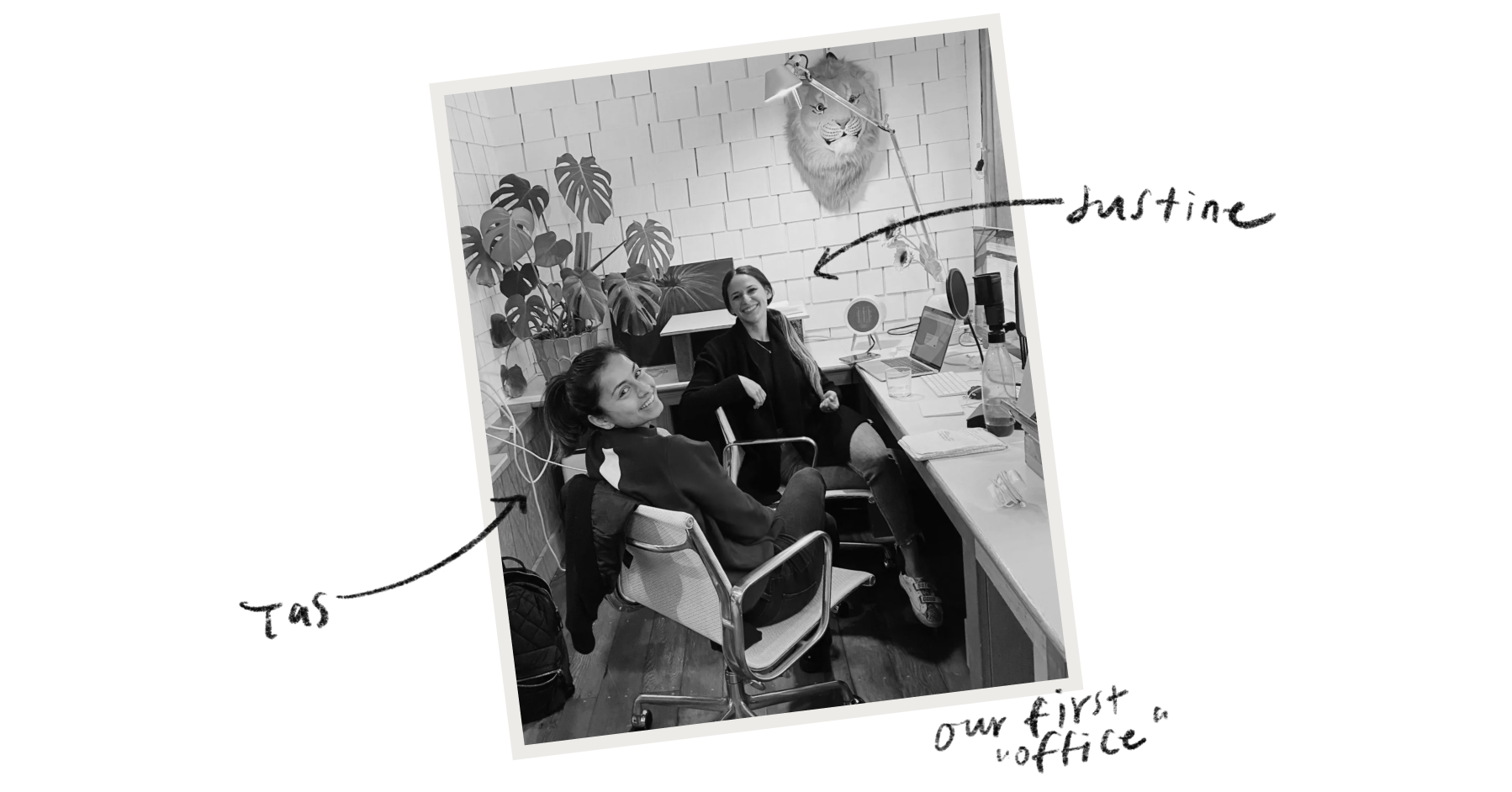Kindred house swapping: how it all began
Before it was the #1 fastest growing home exchange site, it was a simple idea on a whiteboard.

Before Kindred had a name, before there were members or home videos or host kits, there was a cabin in Calistoga and a question written on a whiteboard: What if travel could feel more human again?

Kindred co-founders Tas Amina and Justine Palefsky met as early employees at the property technology company Opendoor. They worked on different teams, so while they were friendly, they didn’t interact all that much.
The two might have continued working at tech companies, saying hello when their paths happened to cross — if not for the pandemic. As the world around them was changing, both Tas and Justine started thinking about building something of their own, something meaningful.
Separately, they approached their mentor, the CEO of Opendoor, to ask for advice. He connected the dots and told them to talk. And once Tas and Justine got on the phone, they realized how well their goals aligned: They both wanted to improve people’s lives, ideally in the travel and community space. But what kind of company would achieve that goal, and were the two of them well suited to launch it together?

To answer those questions, Justine and Tas locked themselves in a cabin in Calistoga, California, with a giant whiteboard. Once they started getting into stories about their childhood, they learned that while they brought different skill sets to the table, they had a shared value system that was formed in no small part by travel.
Justine grew up in the city of San Francisco. Their house had a studio apartment in the garage that was always occupied by a second cousin, a family friend, a friend-of-a-friend. Her parents saw the apartment as a gift they could give to their extended community: a warm, hospitable place to stay in a great but often costly city. In exchange, those guests would welcome Justine and her family into their homes. In this way, the family found an affordable way to travel the world. Indeed, Justine’s mom would often say that travel is one of the most important kinds of education.
Tas grew up in a big family in India, where there was a communal rearing of children. She was very close to her aunts, uncles, and cousins, and bopped around to all of their houses in different regions of the country. For her, “home” was less a place and more a feeling.
As adults, both Justine and Tas wanted to squeeze more travel into their lives. They wanted to feel the transformational joy that happens when you get out of your day-to-day routine and experience something wholly new. But traveling for long stretches of time was prohibitively expensive. They agreed that if they could figure out a way to fundamentally change the cost structure of travel, that could be a universe-denting idea.

Back in that cabin, they said, “How amazing would it be if we could go somewhere and people welcomed you as though they knew you?” They wanted to recreate that experience from when they were kids. They sketched out what would eventually become Kindred: "A home-swapping network rooted in trust, generosity, and belonging."
They invited 30 friends to list their homes and swap with one another. Justine hand-delivered sheets, towels, and a handwritten note. From that first cohort, Kindred started to grow — not with splashy launches or incentives, but through real people sharing real stories about what it meant to live and travel this way.
Because that’s what this has always been about. Not just affordable travel. Not just avoiding hotels or sterile rentals. But choosing a different kind of life: one that’s slower, warmer, more generous. Kindred is still growing, but the heart of it hasn’t changed. It’s still about that feeling — when you arrive in a new place, open the door, and somehow feel at home.


